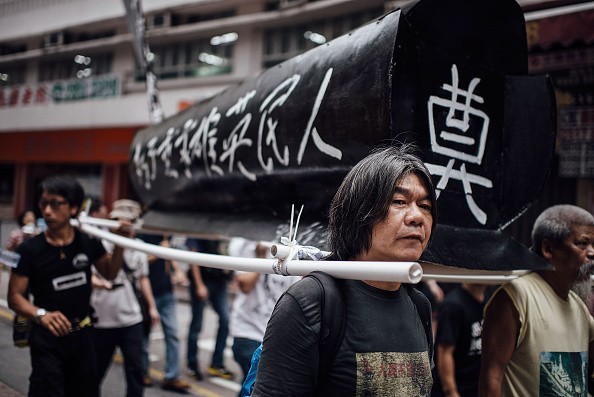China passed a contentious law on Thursday granting the police extensive powers in controlling foreign charities and prohibiting such organizations from enlisting members or raising funds in the country. The law has given rise to an immediate and widespread protest.
The new law pertaining to foreign non-governmental organizations (NGOs) has aggravated concerns from charities as well as foreign governments that it grants police unrestricted powers along with a government crackdown on civil society.
Currently, no less than 7,000 foreign NGOs are believed to be operating in China, which includes development charities like Save the Children, several advocacy groups such as Greenpeace, chambers of commerce as well as university centers.
On the other hand, a committee of the Communist-controlled National People's Congress (NPC) endorsed the new law more or less unanimously with 147 votes in favor and just one against, Xinhua, the Chinese state news agency, quoted as the NPC spokesman He Shaoren telling reporters.
According to Xinhua, the bill was submitted to the bi-monthly session of the NPC Standing Committee and, in its review report, the NPC Law Committee recommended that the bill be put for a vote during the session running from Monday to Thursday following two readings.
The law, which is aimed at regulating the activities of NGOs founded outside the Chinese mainland, states that exchanges as well as cooperation between Chinese and foreign colleges, hospitals plus natural science and engineering technology institutes should be undertaken only in line with existing regulations.
However, the new legislation does away with the restriction of allowing only one office in the Chinese mainland. Henceforth, the foreign charities can open offices as per their operational requirements. However, it will be mandatory for such institutions to obtain prior approval of the regulatory authority regarding the number as well as locations of the offices.
Henceforth, overseas groups working throughout Chinese civil society on issues related to environment, philanthropy and cultural exchanges, and perhaps even in education and business will be required to find an official Chinese sponsor. In addition, it will be mandatory for them to register with the police. The new law is also applicable to groups working in Taiwan, Hong Kong and Macau, New York Times reported.
Organizations that fail to receive official approval will have to stop operating in China. It is expected that several of the existing groups will either cut back or do away with programs considered to be politically sensitive, for instance training lawyers, with a view to remain in operation.
The new law is the most recent series of actions initiated by Chinese President Xi Jinping against the Western influences and ideas which he as well as other leaders of the NPC believes are a threat to the Communist Party's survival. It is expected that Xi will enact further sweeping security laws in line with his and the party's ideology.
Watch the video on "China denies controversial draft law would block all foreign sites" below:



























